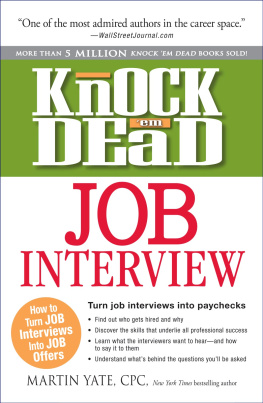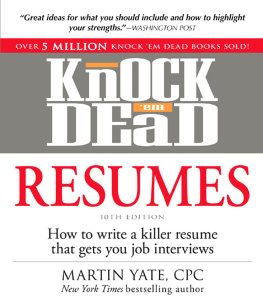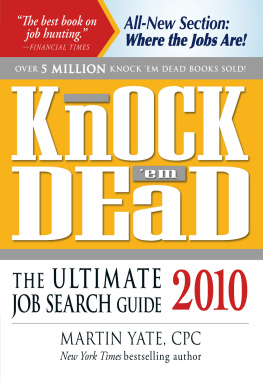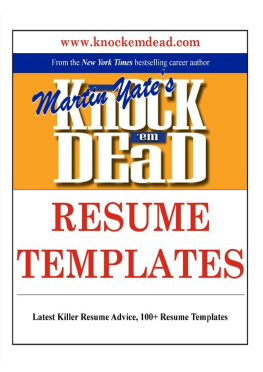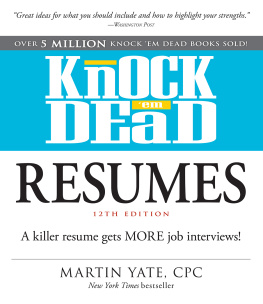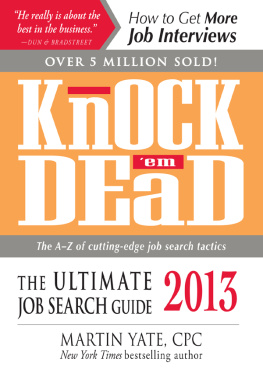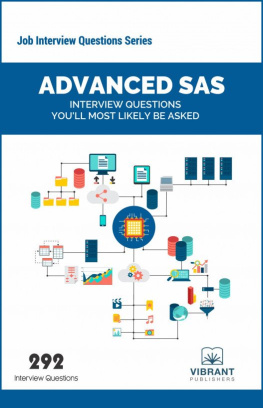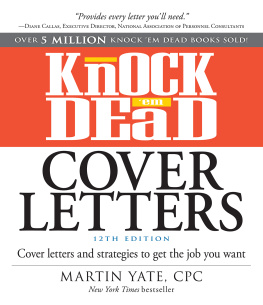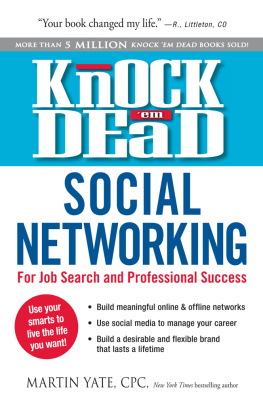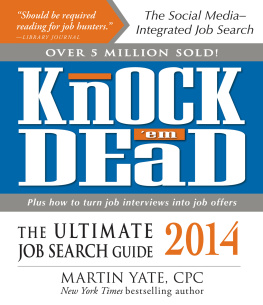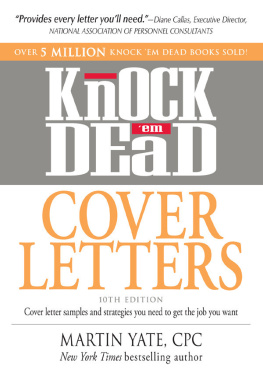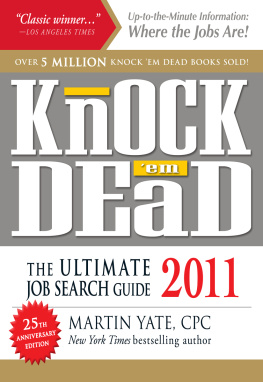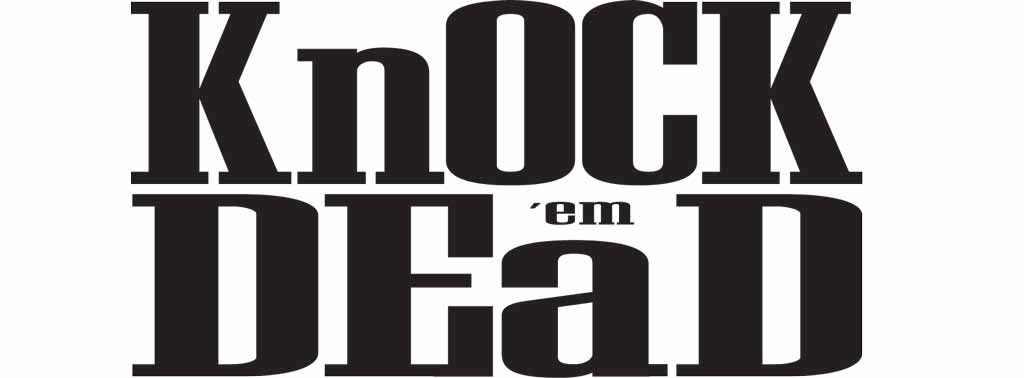When you turn job interviews into job offers, new and wonderful things become possible in your life. In the year it took to write, edit, and publish this book, I got engaged to and married Angela, who has given me the opportunity to make new and wonderful things happen in my life. Angela, this book is for you.
INTRODUCTION
THE LAW OF SURVIVAL
I F YOU LIVED IN THE WILD, youd need to know how to make fire to survive. But you live in an urban world, and you need to make money. That means you need a job, and the only way you get a job is by turning a job interview into a job offer.
The transition you are going through today probably isnt your first job change, and it probably wont be your last, either. Statistics say that you will likely change jobs about every four years throughout your work life, and since youll probably work for about fifty years, that means 1215 job changes. With so many job changes throughout the average career, it should be a no-brainer that job search and career management skills are the most important skills you can possess. However, throughout your life youve been told that all you need to do is get an education, and the rest will take care of itself. The ability to turn a job interview into a job offerthe equivalent of the cavemans ability to make fireis the most important skill you can ever possess, and yet no one has ever bothered to teach it to you. And because of that, what should be your greatest strength has become your greatest liability.
In this Knock em Dead book, I am going to show you how to turn this critical weakness into a strength: Im going to show you how to turn job interviews into job offers. Going forward, you will use the strategies and tactics you learn here not just to get a job, but to improve your career: These are skills you will be thankful for throughout your life.
Why Do You Go to Job Interviews?
Headhunters and hiring managers say that many candidates think interviews are about deciding whether they want the job, and that often the only questions asked are about salary, vacation, and benefits. You dont go to a job interview to decide if you want the job, because you have nothing to decide until an offer is put on the table.
You go to a job interview to get a job offer and to turn your greatest professional weaknessturning job interviews into job offersinto a professional strength.
Nothing else matters, not the pay, the benefits, or the work environment; they are all irrelevant until an offer is on the table. You go to every job interview to improve your ability to get job offers, so you should treat every interview as an opportunity to build this most critical survival skill.
Interviewers Hate Interviewing
The person on the other side of the desk is not your adversary; shes someone who really wants to hire you. The truth is, managers hate interviewing. They want to find someone who can do the work, wants to do the work, and can get along with others. They want to hire someone ASAP and get back to their real work.
You just have to help them make that decision, and that is what I am going to help you do. Listen up, because I am not going to waste a word, or a moment of your time. Remember, what you learn will not only help you land that next job, it can change the trajectory of your life.
PART ONE
HOW TO TURN JOB INTERVIEWS
INTO JOB OFFERS
CHAPTER 1
THE FIVE SECRETS BEHIND EVERY HIRING DECISION
A S YOU WALK IN THE DOOR FOR YOUR NEXT INTERVIEW , I guarantee that hiring manager is thinking, Please let this be the one I can hire so I can get back to my real job. How well you perform in job interviews determines the jobs you are offered, the money you earn and, to a degree, the life you enjoy outside of work: You want to do this well. Your job search is a sales campaign, and job interviews are sales presentations. Whatever you do professionally, for the duration of your job search you have another job title: You are a salesperson selling the professional youa unique portfolio of skills, experience, behaviors, and values wrapped in a living, breathing package that qualifies you to do a specific job particularly well. You are selling a living product: yourself.
At job interviews, you display your product for potential buyers. These buyersyour interviewerscompare your product to the others they have seen. How effectively you pitch your product and differentiate it from the others will determine whether or not you get the job offer.
The Building Blocks of Job Offers
The ability to turn interviews into offers is built from the following components:
- Understanding how your customers make buying decisions
- Understanding what your customers want to buy
- Identifying what you have for sale that they want to buy
- Tailoring your sales pitch to your customers needs
- Selling what you have to offer
Preparation is half the work: Prepare properly and succeed; or dont, and fail. To differentiate yourself from other candidates, youve first got to understand how your customers make their buying decisions. This is especially important because the criteria employers use to make hires are the same ones they use to decide who gets the raises and promotions.
How Employers Make Buying Decisions
No employer wakes up in the morning saying, Its a wonderful day in the neighborhood; I think Ill hire an accountant. Staff is only ever added to the payroll for one reason: to help the company make money. Whatever your job title, that job is a small but important cog in the complex moneymaking machinery of the corporation.
Your cog has its own set of responsibilities and contributions to make, but it must also mesh seamlessly with other cogs in the department (and elsewhere in the company), working in harmony to execute tasks beyond the scope of individual effort. Your job title is only added to the payroll when the costs of hiring and paying you are outweighed by your contribution to the bottom line, through bringing money into the company, saving money, saving time, or otherwise increasing productivity.
There are five criteria that hiring managers apply to every hiring decision to ensure these goals are met. These criteria are applied when hiring for any job, at any level and in every profession. Understanding these five secrets of the hire will change the way you think about your work, revolutionize your performance at job interviews, and can power greater success in your next job and throughout your career.
The First Secret: Ability and Suitability

